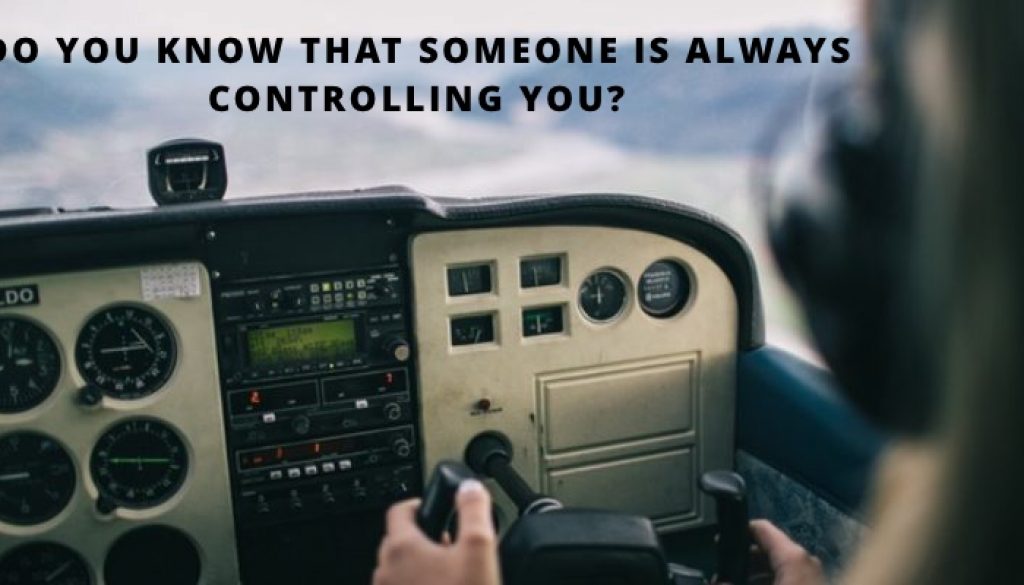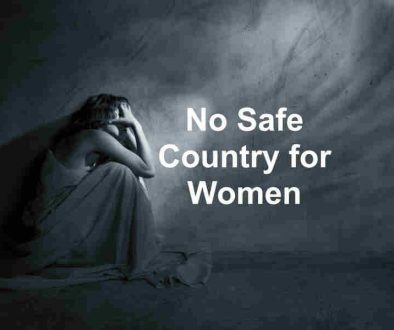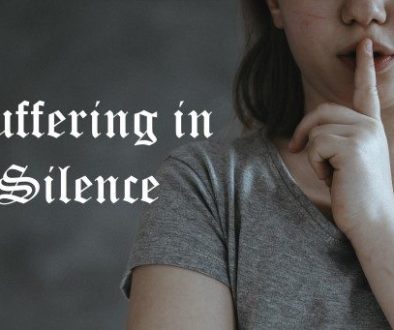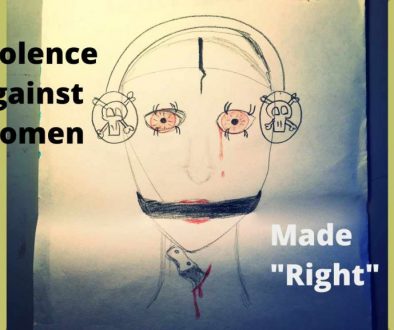Someone is ALWAYS Controlling Us
Many people may have a very negative connotation for control or people who are controlling. And yes, at the receiving end of control, it may be quite agitating and annoying. But do you know that we are controlled by so many forces and we might not even know it? We are conditioned to be controlled and yet we resist it so much.
The dictionary defines control as the power to influence or direct people’s behaviour or the course of events. We don’t need to look too far to see how much penetration this phenomenon has in our lives:
- We have traffic controls that guide our driving behaviour (most of the times ;-),
- Most societies have a justice system that controls our behaviour by defining what is “acceptable” and what is “punishable” behaviour,
- Our cultural norms exercise moral and ethical controls and dictate what is “right” vs “wrong” behaviour, and
- Social constructs such as “husband”, “wife”, “friend”, and “daughter” etc place behavioural expectations on individuals and are also a form of directing and guiding other people’s behaviours.
We live with control every day, sometimes not even knowing that we are. Isn’t interesting to understand, what is at the heart of control?
What does control provide that it becomes such an attractive phenomenon for individuals, groups, religions, governments and institutions?
And the answer is that control gives us CERTAINTY!
When we are driving on the road, we are certain of driving most of the times and we expect other cars to drive in lanes, stop at the red light, and drive within the speed limit. This allows us to relax while driving because we feel safe that most of the times, people will drive safely and that would keep us safe (as drivers).
When we get married, we can be certain that we would live together with our wife or husband. We will share our financial and romantic responsibilities. And we will love and respect and reproduce together (most of the times).
Is Control Arbitrary?
I have spent most of my life in Karachi, Pakistan. The legal system and cultural norms are mostly driven by Islamic rules and guidelines. Traffic rules are non-existent so people don’t expect other drivers to follow them. It’s their own responsibility to be “safe” on the road.
When I drove on the roads in Karachi, I didn’t get upset with drivers who would cross the red light, or not drive in lanes because that wasn’t an expected behaviour. The traffic laws didn’t control or direct people’s behaviour. As a result, I drove with hyper-vigilance. I was always ready to slam the brakes because anything could happen.
Culturally, display of affection between the adults was considered “wrong” so as an adult, I didn’t display affection with my husband at the time; and I didn’t expect other married couples to show affection either. In fact, on rare occasions when I did see some married couple holding hands, I looked at them with a certain “disdain”.
When I moved to Singapore and then to Australia, the “wrong” suddenly became “right” and the “right” suddenly became “wrong”. Not following traffic rules was the “wrong” thing to do and display of affection between humans was the “right” thing.
I was now “controlled” by different guidelines because I was geographically in a different place.
In 2008, my mother came and visited me in Sydney, Australia. She tried to drive but found it to be too restrictive. She said that the traffic rules took her freedom away and she didn’t enjoy it as much as she did it Pakistan.
We are conditioned to want to control…
We spend our young lives understanding rules and guidelines in various forms. We learn the prevalent norms and acceptable behaviours at home, at work, with friends, and in our relationships. This conditioning happens at various levels such as: from our parents, from our teachers and role models, from our government and institutions, and finally from the generations that have come before us. Some of this conditioning is at such an unconscious level that it would be very difficult to change it let alone be aware of it.
Isn’t strange that we resist and don’t like people who are controlling? Even though we are probably controlled by so many forces simultaneously and that’s mostly what we do to others as well.
When Control gets out of Control…
It is quite clear that our sense of “right” and “wrong” is driven by the systems that control us and direct our behaviour regardless of how arbitrary these systems are.
How many times do we “lose it” at other drivers when they do something “wrong”?
How many times do we fight with our parents or children when they don’t behave as expected?
How many times do we tell our partners “It is your responsibility?” or “You should…”
Imagine your partner didn’t do anything for valentine’s day or forgot the anniversary or birthday or something like that – How would you react? Well, if you are in Australia, you would get upset with them because “they are supposed to…”. If you are in Karachi, Pakistan – there is no such thing; they haven’t done anything “wrong”.
Personally, I feel that we get identified with the labels, rules and guidelines that we grow up with and then use these to make other people “wrong” and this is where the control gets out of control. We lose the discernment.
Next time, when you get upset with someone, pause for a moment. Take a deep breath and reflect on whether your upset is driven by some arbitrary rules about what’s right and what’s wrong? Is there a space for negotiation, open communication, and individual agreements or would you allow the social norms to dictate your life, your feelings and your responses?
The choice is yours.
In my next week’s blog, I will continue to unravel the “Control” and give you more insights into the aspects of control that work “really well” for the abused. Stay tuned…
** image courtesy: https://www.pexels.com/




February 4, 2017 @ 12:05 pm
A thought of discussing the arbitrary control is interesting, how often we think about this.. grew up under that label and when label changed same thing has a different meaning… most of the time we swing between right and wrong. but there is a freedom when we open channel for discussion and communication.. then there is no right or wrong there is space and understanding..
February 10, 2017 @ 12:56 pm
You are right Shagufta. It’s always good to be aware of this conditioning so that we can choose differently